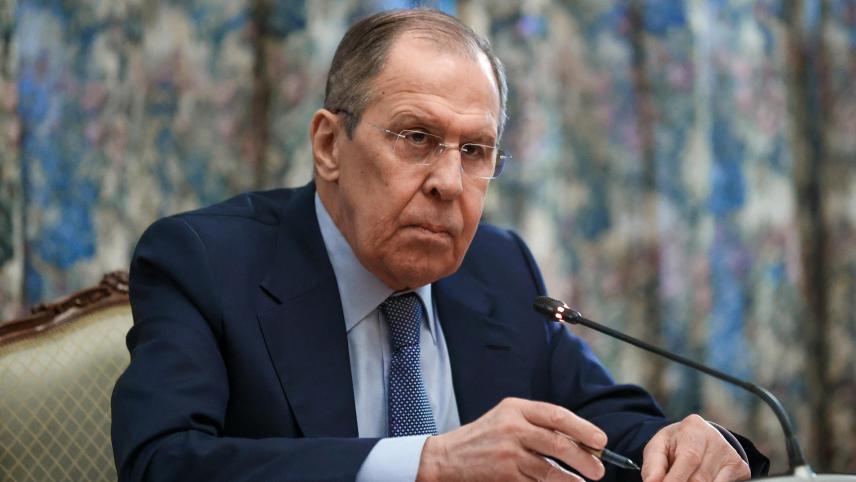In a transparent attempt to drum up sympathy for Russia and its unprovoked ongoing invasion of Ukraine, Russian Foreign Minister Sergey Lavrov compared the situation to the longstanding language disputes in Belgium.
In an interview with French television channel TF1 this weekend, Lavrov tried to reframe Russia's ongoing war in Ukraine as something that could also happen in the West, directly naming France and Belgium in a far-fetched comparison.
"For the West, it did not matter at all what happened to the Russian language, to Russian education, to the Russian media, which were banned by law," he said.
"For example, how would France react if Belgium banned the French language? Or what would England do if Ireland banned English? In Europe, one cannot imagine that," Lavrov said. "But when it comes to Russian, nobody in Europe cares."
Language disputes
While the use and status of the Russian language are the topic of many political disputes in the country, Ukraine has not banned it. In large cities in the eastern and southern portions of the country, Russian is still the most common language.
The status of the Russian language in Ukraine has been a matter of debate for years, and government plans to abolish the status of Russian as an officially recognised minority language caused unrest in the east of the country during the 2014 Maidan uprising.
Then, the pro-Russian government in Ukraine fell after violent street protests and was succeeded by a government with a pro-Western stance. Laws have also been passed to promote Ukrainian, much to the displeasure of Russia and pro-Russian politicians in Ukraine, among others.
Still, while Ukrainian is the country's only official state language, the free development and use of Russian (and other languages of national minorities) are also guaranteed. Ukraine did restrict the use of Russian in education in 2017, but the language remains widely used in Ukraine, including in pop culture.
Related News
- War crimes in Ukraine will not go unpunished, EU warns
- 'The West was preparing to invade our land': Putin marks WWII Victory Day
- Russian state media's hysteria: Ukrainian civilians are now 'Nazis' too
Lavrov used the occasion to reiterate the Kremlin claim that the "Russian mission" in Ukraine is to "protect the Russian language and culture" and "denazify" the country – a false narrative that has been repeated by Russian government officials for three months now.
On French television, he again said that Russia was forced to invade Ukraine, under the pretence that a supposed "genocide against the Russians" is taking place in the country.
Lavrov also stated that claiming the Donbas region in eastern Ukraine is "an unconditional priority". Russia has persistently tried to portray itself as a liberating force that will free the provinces of Luhansk and Donetsk from the Ukrainian regime. Yet as the world looks on, it is hard to sympathise with the aggressor's blatant attempt to rewrite history.

